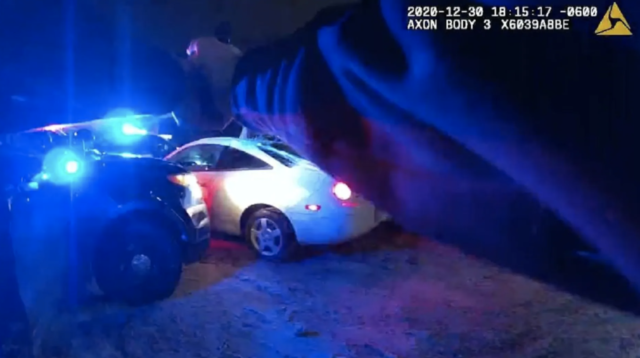
COLUMBUS, OH — Governor Mike DeWine has signed into law a controversial provision that could charge the public hundreds of dollars for access to police body camera footage and other law enforcement videos, sparking concerns about transparency and the potential impact on local news organizations and the public’s right to know.
The bill, House Bill 315, was passed during the late hours of the 17-hour marathon lame duck session. The 450-page omnibus legislation includes a provision that allows law enforcement agencies to charge for the estimated cost of processing and providing video footage from body cameras, dash cams, and jail surveillance cameras. The fees could reach up to $75 an hour, with a cap of $750 per request.
The move has raised alarms among legal experts, journalists, and transparency advocates, who argue that such fees could make it difficult for average citizens and the media to obtain public records already funded by taxpayer dollars. These records include vital footage that holds law enforcement accountable, especially in cases involving police shootings or other public safety matters.
Governor DeWine addressed concerns over the provision in a statement, defending the new policy as a compromise to balance the needs of law enforcement with the practical realities of handling video records. He acknowledged that while the proliferation of police body cameras has significantly improved investigations and accountability, the increase in footage has created an administrative burden for many small police departments.
“These requests certainly should be honored, and we want them to be honored in a swift way that’s very, very important,” DeWine said in a December press conference. However, he explained that the process of redacting and reviewing video content for release is time-consuming and costly for agencies, especially for smaller departments.
DeWine also pointed out that while he strongly supports the right of the public and media to access these records, the legislation provides a mechanism for agencies to recover some of the costs associated with producing these records. He stressed that the fees would be optional at the discretion of each agency and that the fees would be capped to avoid excessive charges.
“I strongly support the public’s—and the news media’s—right to access public records,” DeWine said in his press release about the bill signings. “However, I am sensitive to the fact that this changing technology has affected law enforcement by oftentimes creating unfunded burdens on these agencies.”
Despite DeWine’s reassurances, some state lawmakers remain concerned. State Senator Niraj Antani (R-Miamisburg), who helped sponsor legislation in 2019 that made police body camera footage a public record, expressed his worry that the new fees could be burdensome. “I am deeply concerned a $75 per hour fee will be burdensome,” Antani said. “I appreciate Governor DeWine saying he will monitor this to ensure the fee does not restrict the public’s access to these videos, and that if it does, he will work with the General Assembly to fix this.”
The bill’s passage has triggered a broader debate over transparency, the cost of accessing public records, and the balance between accountability and practical limitations faced by law enforcement agencies. Governor DeWine has pledged to work with the General Assembly if unforeseen consequences arise from the new provision, ensuring that the public’s access to critical records is not unduly restricted.
As the new law takes effect, critics will be watching closely to see if it impedes the public’s right to know and how it affects the press’s ability to report on important issues involving police conduct.










